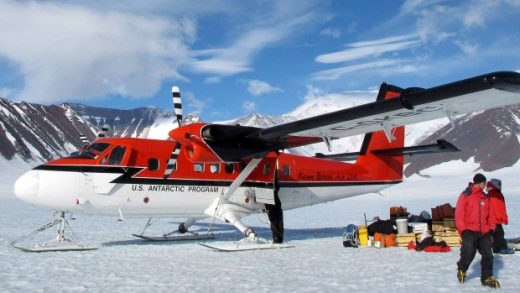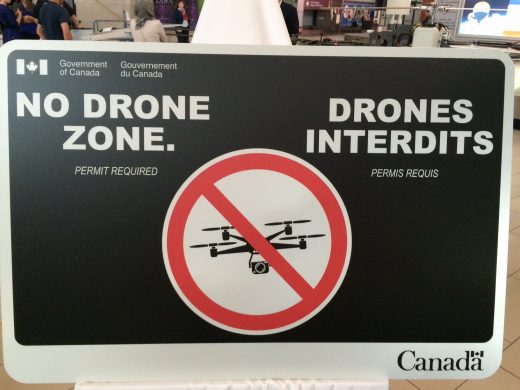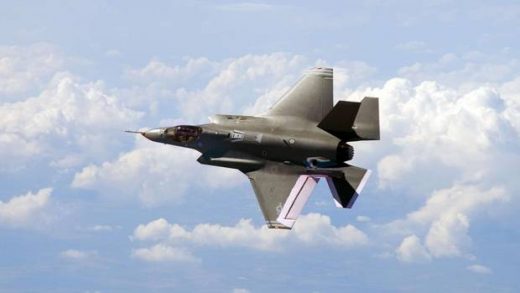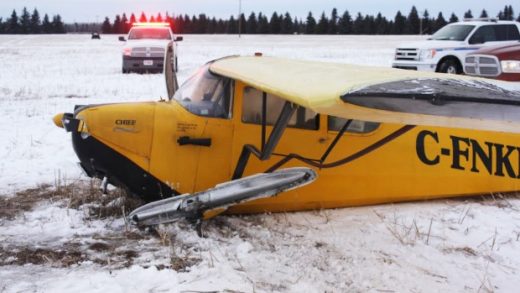 Scroll Down to see all of this week’s updates
Scroll Down to see all of this week’s updates
Twin Otters Headed to Antarctica

Two Twin Otters from Kenn Borek Air are on their way to the South Pole to evacuate someone with medical problems.
The person has only been described as a seasonal employee with Lockheed Martin working at the Amundsen-Scott station at the Pole.
Kenn Borek regularly flies in Antarctica in its summer but now is the dead of winter with no daylight and temperatures hovering around -60 C.
National Science Foundation spokesman Peter West said no flights are scheduled at this time of year because of the extreme conditions but the person needs hospitalization. The Twin Otters are expected to reach Antarctica on Sunday.
“We’re keeping a careful eye on the weather, I don’t know what the window is that far out,” West told the CBC.
Calgary-based Kenn Borek Air has carried out similar evacuations previously in 2001 and 2003.
One of the Twin Otters will be based at the British station at Rothera to be used for search and rescue if necessary while the other one heads to the Pole for the evacuation.
Drone Awareness Program Announced

Transport Minister Marc Garneau announced a drone awareness program earlier this week aimed at re-enforcing the message that drones are not allowed near airports.
Signs will be posted at airports across the country as a reminder that illegally flying the unmanned aircraft could result in major penalties.
Canadian Owners and Pilots Association (COPA) VP of Operations Patrick Gilligan took part in the news conference in Ottawa and prepared the following remarks.
“[The] No Drone Zone awareness campaign announced by Transport Minister Marc Garneau, is another positive step by Transport Canada to educate Canadians on their responsibilities while flying Unmanned Aircraft.
“Flying unmanned aircraft in airways, control zones or around airports could be compared to and as criminally irresponsible as throwing a brick from an overpass on a busy highway. Airports and control zones are busy airways, where pilots focus their attention for their own safety and of their passengers. Distraction by outside sources increases the workload on the pilot.
“Currently there are hundreds of UAV reports logged by pilots including last month’s report of a drone flying at 6,700 feet near Ottawa airport interfering with scheduled airliners. Our COPA Director for Quebec Jean Messier also reported two near mid-air collisions around airports last year. One was approximately 2,800 feet while his aircraft was level at 3,000 feet. The second was reported to ATC while he was on approach to St-Hubert airport.
Lockheed On Offensive

Lockheed Martin is reiterating its often-made warning that Canadian businesses will lose out if Canada rejects the F-35.
In yet another foray to Ottawa to try to keep Canada involved in the F-35 development program, the company sent Steve Over, the director of international business development north to press the company’s case for the fighter.
“The world’s best air forces have all decided the F-35 is absolutely superior and offers the best value,” Over told reporters.
“It’s not my prerogative to question your political leaders, but what do they know that these 12 air forces besides them don’t know?”
Also included in his message is the fact that Canadian companies could lose lucrative contracts to build part of the aircraft.
“This is not a punitive measure, it’s not a threat,” Over said. “Still, it’s impossible for us to meet our industrial commitments to the seven other partner nations if every nation does not buy the quantity of airplanes that they said they would buy.”
Over made the trip amid increasing rumors that the federal government is ready to hand over a sole source contract to Boeing to supply F/A-18 Super Hornets to fulfill Prime Minister Justin Trudeau’s campaign promise to reject the F-35 as too expensive and ill-suited to Canada’s needs.
$2,500 Fines in Hand-Prop Mishap

The owner of an Aeronca Chief that got away from him after he hand propped it in March of 2015 has apparently been fined $2,500 for three violations of the CARs.
Transport Canada is only identifying the pilot as being from somewhere on the prairies but the incident it describes on March 27, 2015 is identical to the one we reported shortly after.
Quoting the CBC, we noted the aircraft briefly became airborne before being written off in a crash at the Nipawin, Sask. airport.
The owner was fined for the improper hand-propping, failing to make the proper log entries and not having liability insurance.
Transport Canada told the CBC it wouldn’t confirm the Nipawin mishap was the source of the fines, citing privacy concerns.
